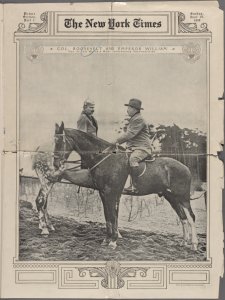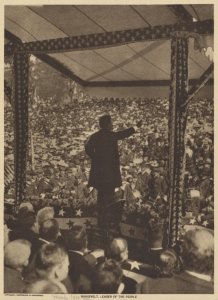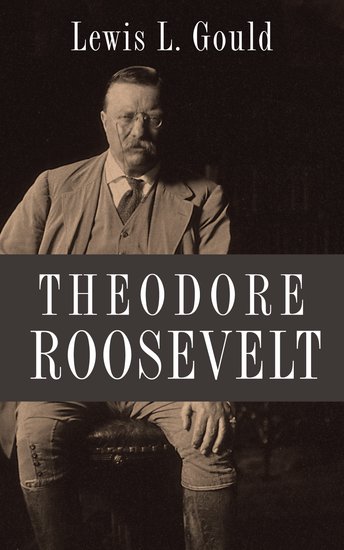This President’s Day we wanted to take a look at the often overlooked and underrated Theodore Roosevelt. While this holiday may have originated with the birthdays of Lincoln and Washington, it’s important to remember all the great men who’ve held the office of President. –Justyna
By Lewis L. Gould
When President Obama invoked the name of “Teddy” Roosevelt in his speech at Osawatomie, Kansas, in December, he seemed on safe ground in referring to his predecessor by that familiar nickname. In the world of the talking head and the political pro, everyone knows that Theodore Roosevelt was called “Teddy” by one and all. What better way to establish credentials as a keeper of the presidential heritage than to refer to “Teddy”? The cable news experts who commented on the president’s remarks had their own orgy of “Teddy” references. When done with the proper blend of authority and sophistication, the use of the nickname tells the audience that here is a person in the know. Since all these prominent pundits call him Teddy, then that must have been what he liked as well.
Wrong. Anyone who spends time with the extensive historical literature on Theodore Roosevelt recognizes that he abhorred his public nickname. If you knew Roosevelt well, you never called him “Teddy.” In fact, unless you were a very close friend, such as Senator Henry Cabot Lodge or Secretary of State Elihu Root, you could not even call him “Theodore.” Addressing him as “Roosevelt” was a privilege. Most people called him “Mr. President” in the White House and Colonel Roosevelt, recognizing his service in Cuba in 1898, after he left office.

They still do a century later. Theodore Roosevelt has been reduced to a caricature of pince-nez glasses, a bushy mustache, a Rough Rider hat, and periodic references to the “bully pulpit.” Beneath those outward trademarks was a serious political thinker with important proposals about reforming American society. In today’s celebrity culture, where ideas are anathema to the denizens of cable news, the pundits who dub him “Teddy” are not just wrong in an historical sense. They perpetuate a picture of American history as a series of personalities devoid of content and substance. Celebrity is about false narratives regarding real people. The importance of Theodore Roosevelt disappears when he is nothing more than a compelling name and time-worn image.
Does it make any difference that Teddy, applied to the image of Theodore Roosevelt, is incorrect and misleading? Yes, because the term conveys a spurious sense of historical expertise among politicians and commentators with more panache than real knowledge. Theodore Roosevelt believed in the importance of accuracy and the need to create a picture of the past that was true to the actions and practices of those who had gone before. He knew what he wanted to be called, and his wishes should be respected. Instead of allowing Roosevelt the reality of his own views about his name, the contemporary reliance on “Teddy” reflects the intellectual looseness of a political culture more obsessed with being entertaining than being accurate.

Lewis L. Gould is Eugene C. Barker Centennial Professor Emeritus in American History at the University of Texas at Austin. His books include Theodore Roosevelt, The Presidency of Theodore Roosevelt, and The William Howard Taft Presidency.



Thanks to Professor Gould for this timely and insightful essay, which I have just downloaded and will distribute in class today. As it happens, our American presidency course assignment this afternoon is Eisenhower, so it will be great to be able to compare the uses and abuses of “Teddy” and “Ike.”